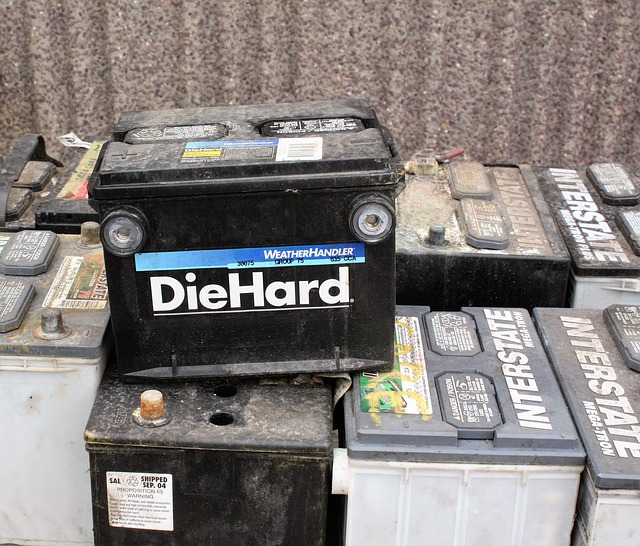In the pursuit of a sustainable and eco-friendly future, one often overlooked yet pivotal aspect is the recycling of car batteries. As the world shifts towards greener practices, understanding the crucial role of car battery recycling becomes imperative in fostering green development. This article explores the environmental impact of car batteries, the significance of responsible disposal, and how recycling plays a key role in shaping a sustainable tomorrow.
The Environmental Impact of Car Batteries
Car batteries, while essential for our vehicles, pose a significant environmental challenge if not handled properly. Traditional lead-acid batteries, commonly used in cars, contain hazardous materials like lead and sulfuric acid. Improper disposal can result in soil and water contamination, posing severe risks to ecosystems and human health.
Beyond lead and acid leakage, toxic gases get released as battery components break down over decades in landfills. These harmful emissions contribute to air pollution and acid rain destroying plant life and marine environments. Lead accumulating in animals and humans creates nerve, brain and kidney damage. Recycling mitigates numerous contamination vectors protecting flora and fauna.
The Importance of Responsible Disposal
Responsible disposal of car batteries is not just a matter of compliance; it is a fundamental commitment to environmental stewardship. Many countries have stringent regulations regarding the proper disposal of these batteries, emphasizing the need for recycling centers equipped to handle their hazardous components safely.
These strict battery disposal regulations enforce against dumping or improper storage given the disastrous consequences illustrated historically. Facilities must demonstrate certified handling procedures and waste containment protections before earning operating permits. Transportation of used batteries also requires regulated tracking. Individual consumers must do their part returning old batteries to qualified depots. Shared accountability minimizes environmental detriments.
The Lifecycle of a Recycled Car Battery

Car battery recycling involves a meticulous process that maximizes resource recovery while minimizing environmental impact. The lifecycle typically includes collection, transportation, dismantling, and the extraction of valuable materials like lead, plastic, and sulfuric acid. These components can then be used in the manufacturing of new batteries or other products, closing the loop on waste and promoting a circular economy.
Retail drop-offs and recycling events collect community batteries for consolidated transportation to regional sorting facilities. Here hazardous and common recyclables get separated before specialized recycling based on material properties. Recovered lead gets smelted and refined into pure ingots useful for an array of battery and radiation shielding applications. Harvested plastic gets remolded into casing for new battery builds or other durable goods. Liquified electrolyte gets recombined or neutralized depending on sulfuric acid market demand dynamics.
Economic and Environmental Benefits of Recycling
Beyond the obvious environmental benefits, car battery recycling contributes significantly to both the economy and sustainability efforts. Recycling reduces the demand for raw materials, conserving natural resources and lowering energy consumption in the manufacturing process. Additionally, it minimizes the environmental footprint associated with mining and extracting these materials.
Factoring in externality costs, recycling adds up to four times more value across environmental, health and economic vectors than disposable options. Smelting recycled lead requires 75 percent less energy than virgin lead ore. Each battery safely transformed into reusable components represents avoided ecosystem disruption upstream. Lower remanufacturing expenses get passed downstream via consumer prices as well. The numbers clearly tally favorably.
Innovations in Car Battery Recycling
As technology advances, so does the efficiency of recycling processes. Innovations in car battery recycling are paving the way for more sustainable practices. From advanced sorting technologies to environmentally friendly methods of extracting materials, the industry is evolving to meet the growing demand for eco-conscious solutions.
Optimized sorting mechanics route similar plastics together achieving higher purity fractions for re-engineering. Hydrometallurgical leaching hopes to replace high-emission smelting through dissolved metal separation techniques still in pilot phases. Recycled material traceability apps further enhance quality controls. Academics continually pioneering cleaner battery chemistries overall as well. The drive toward conservation technologies persists on all fronts.
Taking Action: How Individuals Can Contribute
Individuals play a crucial role in the success of car battery recycling initiatives. Here are practical steps you can take to contribute to green development:
- Educate Yourself: Stay informed about local recycling programs and regulations. Seek reputable disposal partners.
- Choose Green Technologies: Consider electric vehicles (EVs) or hybrid cars with more environmentally friendly battery options.
- Proper Disposal: When it’s time to replace your car battery, ensure it is disposed of at a certified recycling facility.
- Support Recycling Centers: Advocate for and support recycling centers that responsibly handle hazardous waste.
- Spread Awareness: Share sustainability facts with family and friends to grow environmental consciousness.
Conclusion
Empowering sustainable futures through car battery recycling is not just an environmental responsibility but a pathway to a greener, healthier planet. As individuals and societies increasingly recognize the importance of eco-friendly practices, the role of responsible car battery disposal becomes paramount in the broader context of green development.
By understanding the environmental impact of car batteries, embracing responsible disposal practices, and actively participating in recycling efforts, we contribute to a more sustainable and resilient future. Let’s drive change, one recycled car battery at a time.


